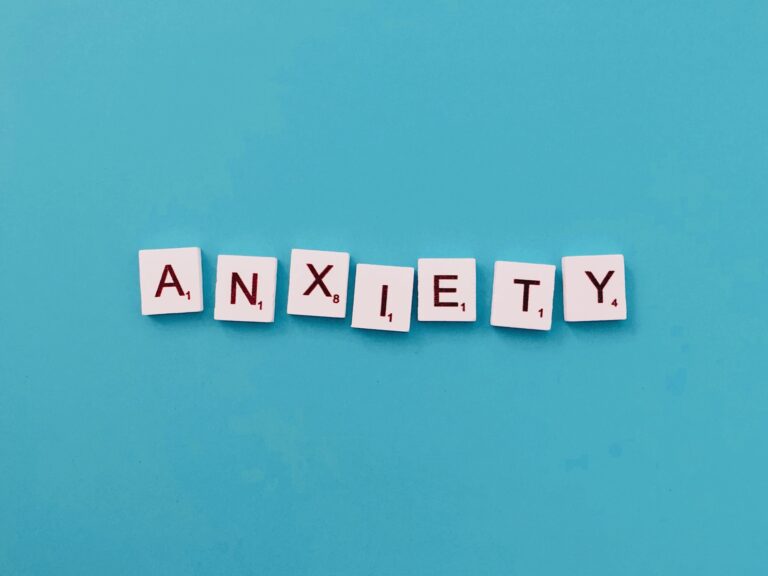Medical Marijuana and Anxiety
Knowing the effect of the naturally found endocannabinoids in the body and their implications on anxiety, the medical community has looked towards cannabis as a potential therapeutic option for mental health disorders. Phytocannabinoids, which are plant-derived cannabinoids, include cannabidiol (CBD) and Δ9-tetrahydrocannabinol (THC). These phytocannabinoids have activity in the body’s ECS, supporting their use in managing anxiety symptoms.
Medical marijuana can be more CBD-dominant, THC-dominant, or involve a combination of the two. Below, we present some of the clinical data supporting the use of these phytocannabinoids in anxiety disorders (3).
CBD
One study aimed to evaluate the effects of CBD on both anxiety in sleep. The study enrolled 72 adult subjects with either poor sleep or anxiety who were administered at least 25 mg daily of CBD in capsule form. After just one month, 79 percent of patients experienced improved anxiety, while 67 percent of patients had improved sleep. Similar results were sustained throughout the remainder of the study, demonstrating the potential of CBD in both anxiety and sleep disorders (4).
THC
One meta-analysis assessed seven separate studies to evaluate the effects of THC. Though the primary endpoint was pain reduction, a secondary endpoint evaluated anxiety levels. The THC group demonstrated more profound decreases in anxiety versus placebo, however, none of the subjects had primary anxiety disorder (3).
For those with anxiety, learning how to cope with debilitating symptoms or settling for highly potent medications with a list of harmful side effects have long been the only treatment options. Traditional doctors are quick to prescribe medicines known to potentially worsen symptoms, cause addiction, or even develop additional medical issues simply because the FDA approves them. What if there was a natural way to treat anxiety without the potentially devastating side effects or addiction concerns? With medical marijuana, it’s possible.

What is Medical Marijuana?
Marijuana is derived from a plant known as Cannabis sativa, and it is often used recreationally via smoking or eating with the purpose of getting high. Although marijuana possession is illegal under federal law, medical marijuana is legalized in almost half of the states in the US.
From a medical perspective, marijuana can help manage several conditions. Small-scale clinical studies show that cannabis can alleviate symptoms associated with conditions like multiple sclerosis, inflammatory bowel disease, Crohn’s disease, and epilepsy. It also can be used for:
- Pain management. Marijuana can alleviate chronic pain associated with nerve damage.
- Increased appetite. In individuals with low appetites due to medical conditions (e.g., cancer, HIV), marijuana can help stimulate appetite and maintain weight.
- Prevent nausea and vomiting. Marijuana can be used in those on chemotherapy to avoid common side effects like nausea and vomiting (1).
Aside from this array of use cases for medical marijuana, there is growing evidence supporting its efficacy in mental health conditions. In particular, medical marijuana may help treat anxiety disorders.
Medical marijuana is a derivative of the plant called Cannabis sativa and is known for its medicinal properties. Currently, this powerful plant is used to treat a host of conditions, including:
- Glaucoma
- Parkinson's Disease
- Epilepsy
- Mental Health Conditions
- Seizures
- Eating Disorders
- Multiple Sclerosis
How Does Medical Marijuana Treat Anxiety?
Anxiety affects over 31% of adults in the U.S., making it one of the most common mental health conditions in the nation. In an interview with PsyPost, a lead Ph.D. candidate at the Medical University of South Carolina, Erin L. Martin, states, “Anxiety and depressive disorders are highly prevalent [however] traditional antidepressants do not work for everyone…and can have unpleasant side effects.”
The THC and CBD compounds within marijuana provide a calming effect on the mind and body, alleviating feelings of stress and anxiety. When taken as prescribed, marijuana can reduce overall anxiety, including social anxiety, providing welcomed relief for those struggling with a chronic condition. Particularly for anxiety, low doses of THC are effective as they stimulate dopamine release, the brain’s “happy hormone” that provides feelings of happiness, calmness, and overall well-being.
Medical marijuana offers a relaxing effect while still allowing the user to feel like themselves. Different strains target specific symptoms, with Sativa most commonly used for stress and anxiety. Sativa is a compound high in Beta-Myrcene, a terpene that produces a motor relaxant and sedative effect. It also exhibits additional biological activities, including antibacterial, antioxidant, anticancerous effects, and anti-inflammatory. As a result, research suggests certain cannabinoids may:
- Help with muscle relaxation
- Reduce anxiety
- Kill some cancer cells
- Reduce inflammation
- Relieve pain
- Control nausea
While scientists continue to study the effects medical marijuana has on the mind and body, emerging research is exciting. Millions of people nationwide are already experiencing the relief medical marijuana offers specifically for those suffering with anxiety.
The Benefits of Medical Marijuana for Anxiety
Medical marijuana is an effective treatment for those with anxiety since it directly targets the endocannabinoid system. This neural network works symbiotically with the immune and nervous systems, playing a direct role in a variety of physiological processes including
- Stress
- Anxiety
- Mood
- Fear
When THC enters the body, it binds with the endocannabinoid system, regulating the way the body responds to external and internal stimuli. As a result, the user can experience a wide range of benefits including the following:
- Mood swing regulation
- Enhanced sleep
- Greater appetite
- Decreased anxiety
- An overall feeling of calm
- Deep relaxation
- Pain relief
Medical marijuana offers many benefits for anxiety sufferers without the scary and often harmful side-effects that are common with traditional medications.
Charlotte Marijuana Doctor, is North Carolina’s foremost marijuana doctor. Our state-licensed board-certified physicians offer face-to-face evaluations, issuing medical cannabis certificates to qualifying individuals. We are here to help you navigate the process of enjoying safe and legal medical marijuana. Contact our friendly team today and see why Charlotte Marijuana Doctor, is the most trusted name for medical marijuana care.
How Medical Marijuana Helps Treat Anxiety
Medical marijuana has emerged as a potential treatment for a wide array of conditions. One such condition is anxiety disorder, a mental illness characterized by feelings of fear, worry, and nervousness. Early research shows the promise of cannabis in this area, representing an unconventional treatment option for anxiety.
Putting it all together
One study consolidated these findings, assessing the short-term and long-term effects of both CBD and THC. The study included 300 subjects with anxiety that were assigned to either a non-cannabis group or a cannabis group getting one of three different therapies: a CBD-dominant product (1% THC, 24% CBD), a THC-dominant product (24% THC, 1% CBD), or a mixed product (12% THC, 12% CBD).
Results indicated that subjects in the cannabis group demonstrated larger decreases in perceived anxiety versus those in the non-cannabis cohort. Of the four separate groups, those taking CBD-dominant products demonstrated the greatest improvements. The CBD group did not experience impairment but did experience less tension and paranoia versus the other cannabis groups (5).
Potential risks
Though results from some clinical studies show promise, medical marijuana does not come without some inherent risks. Common side effects from marijuana include drowsiness, slow reaction times, dizziness, or irregular heartbeat. It can also have emotional side effects, potentially increasing anxiety or causing short-term memory loss, confusion, or poor concentration. Additionally, the Food and Drug Administration (FDA) has not approved marijuana for treatment of any conditions or diseases.
Get a marijuana card for Anxiety
Medical marijuana can help reduce anxiety by promoting relaxation and regulating stress through its interaction with the endocannabinoid system. It offers a natural alternative to traditional medications, potentially providing relief with fewer side effects for some individuals.

